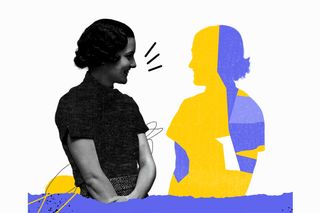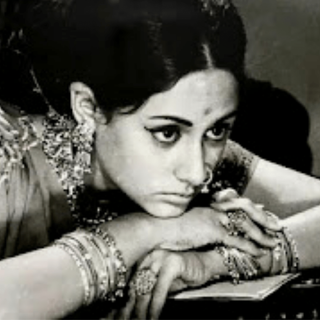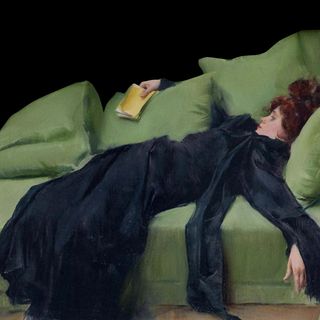
Is This Normal? “I Imagine Friendships With Fictional Characters”
Perhaps it was emotional connection and comfort that I was seeking in my friendships with fictional characters.

In this series, we dig into our strange phobias, fixations, and neuroses, and ask ourselves — Is This Normal?
Hermione used to be a good friend of mine when I was in seventh grade — sometimes, we’d invite Harry and Ron too to grab some mugs of butterbeer with us at ‘The Three Broomsticks.’ We grew apart as we grew older though, and I grew closer to Leslie Knope. But under lockdown, I mostly hung out with Sherlock and Joan, and often found myself seeking sage advice from Princess Leia. If you’re gearing up to tell me they don’t exist, well, I’m aware. But as Albus Dumbledore said, “Of course this is all happening inside your head… But that doesn’t mean it isn’t real.”
While my friends may be fictional, my friendship with them feels pretty real. Is this normal?
According to a study published last month, the “pandemic-induced reliance on screens to engage with real-life friends may have blurred the cognitive distinctions between real-life friends and liked media personae.” The study noted that people formed bonds with characters on TV the same way they would with real-life friends.
According to one study, while extreme instances of obsession with celebrities may be a result of underlying mental health issues, in general, it’s not unhealthy to form attachments with fictional characters. “Screen time isn’t a waste of time… In times where we might need emotional support or need to feel connected to others, entertainment media might be able to compensate for that lack of connection,” Bradley Bond, an associate professor at the University of San Diego, note. Bond’s research focuses on the relationship between media exposure and identity-related outcomes.
Related on The Swaddle:
Is This Normal? “I Talk To Inanimate Objects”
Growing up as an autistic person, I struggled to make friends, and as a result, often felt lonely and isolated — a feeling that the general population experienced collectively in the wake of the pandemic. Was it emotional connection — and, of course, comfort — that I was seeking in my friendships with fictional characters? Perhaps.
The notion of “comfort characters,” however, has not only been around but has also become a sub-culture on social media where “entire Twitter accounts have been created for posts about wholesome fanfiction of people meeting their favorites,” Vice reported last year.
The time and emotions we invest into fiction, perhaps, blur the boundaries between reel- and real- characters. “As anyone who has watched an engaging film or read an engaging novel knows, we invest ourselves deeply in the experience of living with those characters… We tend to respond to them as though they were real individuals,” Howard Sklar, a post-doctoral researcher at the University of Helsinki, had explained.
A 2013 study had noted 78% of the 1,000+ participants from Brazil, the U.S., and the U.K. stating they “want[ed] to ‘friend’ a character digitally — e.g., receive Facebook updates, text messages, etc. — with the ability to sway the character’s decisions, just as with a real friend.” No wonder then that the recurring meme — “I don’t care if he’s a fictional character, I still want to marry him” — is popular in the Internet universe.
These one-way friendships with people we have never met — or, in my case, people who don’t exist in the real world — also have a name: “parasocial relationships.” One can form these bonds with fictional characters, celebrities, and even, influencers. “The feelings people have with these media persona are nearly indistinguishable from their friends in real life,” Alex Kresovich, a doctoral student at the UNC Hussman School of Journalism and Media who has published research on the subject, told The New York Times.
Related on The Swaddle:
Is This Normal? “I Feel Like Someone Is Always Watching Me, Even When I’m Alone”
In addition to providing company and comfort, friendships with fictional characters can also provide safe, positive spaces that we can control. “A parasocial relationship is safe… Your favorite celebrity [or a fictional character] cannot reach out of a magazine article to reject you,” Jaye Derrick, an associate professor of psychology at the University of Houston, told HuffPost. “People with low self-esteem might use their parasocial relationships to see themselves more positively, much like people with high self-esteem do with their ‘real’ social relationships,” Derrick added.
As someone with debilitating social anxiety, I’ve also noticed how I don’t feel under the “spotlight” while interacting with my fictional friends — as opposed to the non-fictional ones. I’m neither distressed by the possibility of being rejected by them, nor am I sitting with my drink in a corner, wide-eyed and worried about how I’m being perceived.
Interestingly, people’s friendships with fictional characters aren’t just restricted to characters they may have come across in books or on the screen; they can be completely imaginary. “I make up fictional characters in my head and pretend they’re people I’m talking to… I realize they aren’t real, and can make them go away,” a Quora user wrote. This prompted others to share similar experiences; turns out, many use friendships with fictional characters as a “coping strategy for life.”
That makes sense, doesn’t it? Well, I’m relieved.
I shall go discuss parasocial relationships with the shinigami I befriended last week while watching Death Note. I wonder what he’ll have to say about this aspect of human behavior.
Devrupa Rakshit is an Associate Editor at The Swaddle. She is a lawyer by education, a poet by accident, a painter by shaukh, and autistic by birth. You can find her on Instagram @devruparakshit.
Related


Woe Is Me! “I Have Zero Motivation. How Do I Change?”
